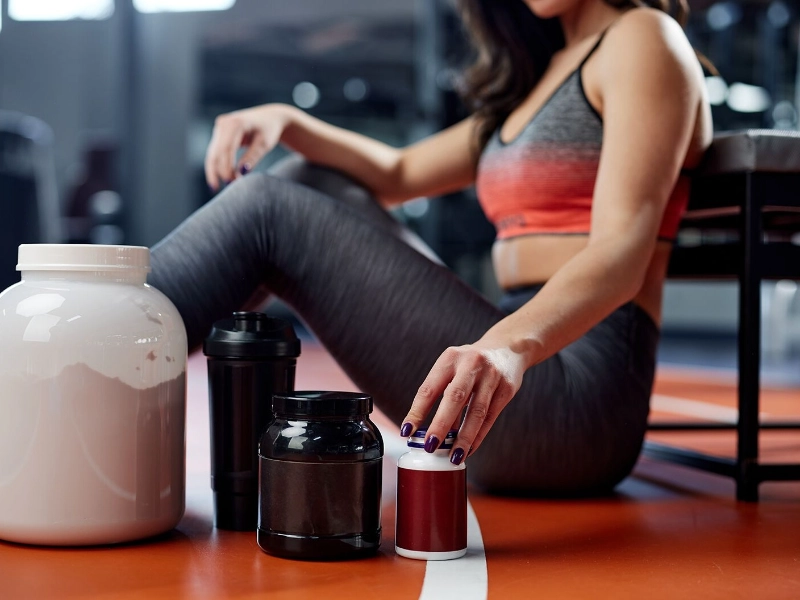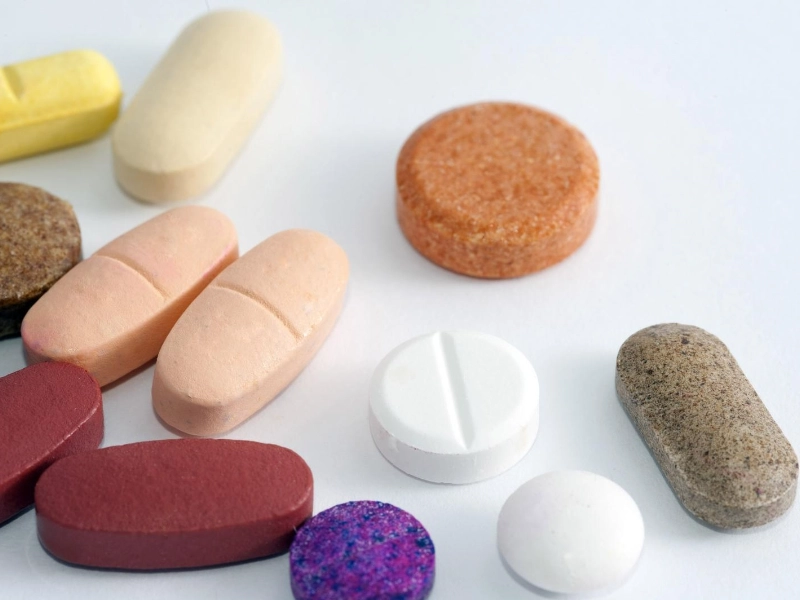Reading workout supplement labels can often feel like deciphering a foreign language. Familiarizing yourself with popular ingredients such as branched-chain amino acids (BCAAs), creatine, and caffeine can aid you in selecting products that effectively support your training and performance goals. It's crucial to remember that supplements should serve as an enhancement to, rather than a replacement for, a well-balanced diet and consistent exercise regimen.

 The popularity of supplements is on the rise, with many fitness influencers promoting pre- and post-workout products as essential for optimal performance and muscle growth. But do these supplements truly deliver results, and are they safe?
Most pre-workout supplements contain caffeine and other stimulants that enhance energy levels by stimulating the adrenal glands to release catecholamine hormones, boosting brain and muscle energy. Some also include creatine, which elevates adenosine triphosphate (ATP) levels in muscles, thereby enhancing strength and power.
Post-workout supplements generally consist of protein and carbohydrates to promote muscle protein synthesis, replenish energy, and mitigate delayed onset muscle soreness. They may also include electrolytes like potassium, vital for hydration and nerve function. Choose a form—whether powder or capsules—that aligns with your dietary preferences and fitness objectives.
The popularity of supplements is on the rise, with many fitness influencers promoting pre- and post-workout products as essential for optimal performance and muscle growth. But do these supplements truly deliver results, and are they safe?
Most pre-workout supplements contain caffeine and other stimulants that enhance energy levels by stimulating the adrenal glands to release catecholamine hormones, boosting brain and muscle energy. Some also include creatine, which elevates adenosine triphosphate (ATP) levels in muscles, thereby enhancing strength and power.
Post-workout supplements generally consist of protein and carbohydrates to promote muscle protein synthesis, replenish energy, and mitigate delayed onset muscle soreness. They may also include electrolytes like potassium, vital for hydration and nerve function. Choose a form—whether powder or capsules—that aligns with your dietary preferences and fitness objectives.
 Despite the claims made by various fitness blogs and influencers regarding the necessity of workout supplements for peak performance, fat loss, or muscle growth, many of these products lack scientific backing and can sometimes pose safety risks.
A balanced diet rich in protein, omega-3 fatty acids, hydration, and essential vitamins can effectively support recovery from exercise. However, some individuals may benefit from specific supplements, such as L-glutamine, creatine, and fish oil.
Sodium bicarbonate, commonly known as baking soda, is another popular supplement that can enhance performance by reducing lactic acid buildup, allowing muscles to function longer. This compound is available in both powder and tablet forms. Other recovery supplements include BCAAs, beta-alanine, and HMB (beta-hydroxy-beta-methylbutyrate). You can monitor your health metrics with the InsideTracker app, which provides insights into your current levels and science-backed recommendations for optimization.
Despite the claims made by various fitness blogs and influencers regarding the necessity of workout supplements for peak performance, fat loss, or muscle growth, many of these products lack scientific backing and can sometimes pose safety risks.
A balanced diet rich in protein, omega-3 fatty acids, hydration, and essential vitamins can effectively support recovery from exercise. However, some individuals may benefit from specific supplements, such as L-glutamine, creatine, and fish oil.
Sodium bicarbonate, commonly known as baking soda, is another popular supplement that can enhance performance by reducing lactic acid buildup, allowing muscles to function longer. This compound is available in both powder and tablet forms. Other recovery supplements include BCAAs, beta-alanine, and HMB (beta-hydroxy-beta-methylbutyrate). You can monitor your health metrics with the InsideTracker app, which provides insights into your current levels and science-backed recommendations for optimization.

Once you’ve established your training routine and optimized your diet, certain supplements can elevate your workouts. However, it’s essential to keep in mind that, while these products may enhance your gym experience, they cannot replace hard work and sound nutrition. Basic gym supplements include protein powders (whey, casein, and plant-based options), BCAAs, beta-alanine, and creatine. These can be taken before workouts for an energy boost, during workouts for endurance, or after exercise for recovery and muscle growth. Curcumin is another beneficial supplement that helps combat oxidative stress from exercise, supports a healthy inflammatory response, and enhances muscular performance. Additionally, the carotenoid astaxanthin may improve exercise performance and endurance; this nutrient is found in dark-colored foods like berries and red onions.